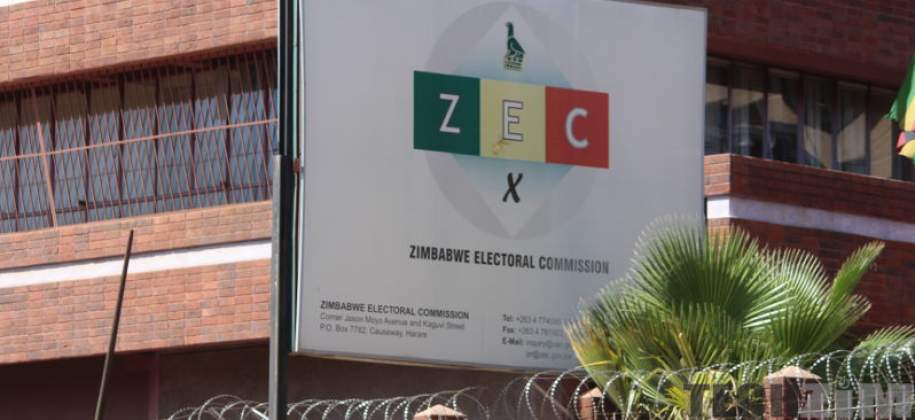By Joyce Mukucha
In 2017, the Zimbabwe Electoral Commission (ZEC) adopted a form of electronic registration model named biometric voter registration (BVR) and during these grave times of Covid-19, the Election Resource Centre (ERC) is calling on the national electoral management body to provide citizens with alternative platforms, different from the norm, for them to exercise their constitutional rights and participate in electoral processes.
Suggesting for ZEC to adopt an online registration model as an alternative, ERC noted that making registration secure, efficient, and easily accessible by voters should be a priority.
“In light of the COVID-19 pandemic and the impact it has had on the elections in Zimbabwe, it is time the Zimbabwe Electoral Commission accepts COVID-19 as the new normal and finds solutions in providing citizens alternative platforms, different from the norm, to exercise their constitutional rights and participate in electoral processes.
“In order to vote, every Zimbabwean must register first. However, in recent times due to COVID-19, concerns around the safety of this process have been raised, which has shifted registration conversations to whether it is possible to adopt an online registration model for Zimbabwe to support the existing registration methods.”
The practice and procedure for voter registration are prescribed in section 17A of the Electoral Act which states that voter registration must be open and continuous in all ZEC district and provincial centres in Zimbabwe.
In the short term, ERC highlighted that a shift towards online registration overcomes the problems that have been present in the advent of COVID-19 with online registration removing the need for voter’s to physically present themselves at registration centres, and guarantees the protection of ZEC registration officials, who through conventional registration methods sometimes interact with over 100 people per day.
“The long-term benefits of a change to online registration includes that globally registration has been deemed to be more accurate and easier to collate for election officials.”
Online registration, ERC added, reaches an increasingly internet-savvy population, especially young people who have more and more become disenfranchised from electoral processes.
Additionally, ERC pointed out that in an environment where calls on accountability and transparency around voter registration and the voter’s roll are amplified as the country heads towards 2023 elections, online registration makes updating registrations efficient, increasing election credibility and reducing election day problems.
However, the organisation also noted that no system is perfect including any change towards an online registration system.
“Several concerns should be noted and addressed when constructing policies to online registration to the options available to the public. Online registration may not help all sections of society equally.
“When the time comes for crafting an online registration system, it is important to consider and mitigate its potential for exacerbating existing disparities in the electorate,” said ERC.
Furthermore, ERC stressed that when it comes to online registration, issues which include inequality in Internet access; unequal economic opportunities; and other circumstances that may limit access to the online system need to be taken into consideration.
“Globally, electronic and online registration systems have become commonplace, and can be implemented in a number of ways taking into consideration the specific needs of a particular country.”
The organisation also said all online registration systems ought to be as expansive and accessible as possible and to work towards universal registration and this includes expanding the opportunity and making the process accessible for those with disabilities and other vulnerable and or marginalised communities.
ERC indicated that “Citizens should be allowed to register as a voter anytime they want by filling out the registration form and submitting biometric data to a ZEC Voter Registration official who captures the submitted data. Online registration allows an individual to register by using the internet this simplifies the registration process.
“Online voter registration systems supplement the traditional registration process and follow essentially the same process,but in stead of filling out a paper application,the voter fills out a form via an internet site,and that form is submitted electronically to election officials for approval.”
Voter registration is a systematic process that determines the eligibility of citizens to vote in an election. It serves three purposes, which are: to ensure that everyone eligible to vote can do so; prevent those not legally entitled to vote from voting, and to curb multiple voting by an individual.






